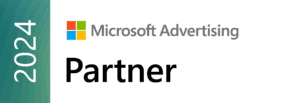“Hello. I’m listening” That was the way fictional 1990s TV radio psychiatry host Frasier Crane opened his talk show when someone called in to talk about a problem. And in our age of social media and consumer demand for increased responsiveness, it’s the mindset that companies need to cultivate if they’re going to reap the benefits of social media.
It’s important to distinguish between social media monitoring as opposed to listening. The former is focused on gathering metrics—likes, shares, comments, retweets, etc. Social media listening, on the other hand, is more intangible. It involves understanding the nuances of customer and prospect reaction. And the response must be well-thought-out, not simply a tactic aimed at increasing your likes and shares.
A comparison would be the polling that political campaigns do. A simple poll would be the equivalent of monitoring, with its quick focus on a handful of numbers. Conducting a focus group is the equivalent of social media listening. That’s where you learn about who really likes or dislikes the candidate and the reasons why.
There are a variety of methods for social media listening, but the most common would be the use of hashtags. Your communications manager would review all the relevant social media outlets—Facebook, Instagram, Twitter, LinkedIn, etc and run searches on the hashtags where your company is most likely to come up. Then you start reading the comments.
We’ve already noted the principal benefit of this strategy, which is understanding how people really feel about your company and its products. But there are several more benefits too….
Find out who’s searching for your product
Let’s say you sell phone systems for businesses and you run search queries on the kinds of keywords people are likely to use when they’ve started the buying process and are soliciting information from other business owners. We’re not suggesting you jump right in the middle of the comments with a hard sell. But this is a great way for a friendly reach-out on social media. Or maybe just simply make a cold-call that will seem “coincidental” to the business.
Another possibility would be for a personal injury law firm. People who’ve been injured usually don’t have their own counsel on retainer. They might take to their Facebook network to ask about a lawyer. Their settings might not be private. And as the representative for the law firm, you’re able to gently provide information on how to contact your attorneys.
Find people who are influencers
During the course of your social media listening activities, you might not find hot leads or references to your product, but you will find out who talks the most about your industry in general, which can be super beneficial.
For this example, let’s say you’re representing an auto parts shop and you stumble across a blogger who writes about just this thing. Would this popular blogger with high engagement levels for their posts be willing to review some free samples of what you have? Can you write a guest post that they could put up on their website? You never know where these interactions can lead.
Steps like these enhance the influencer’s credibility—they’re seen as someone who has “pull” with the movers and shakers in the industry. And they give you a valuable third-party reference.
It takes time to do it right
Social media listening can’t be a quick search done once a week by a staff member who is seen as your “social expert” because they update their Facebook feed five times a day. It has to be done consistently and the distinctions between platforms have to be understood—do people on LinkedIn respond differently to you than people on Twitter? What are the consequences of that difference? Then a good response strategy has to be put in place.
Be like Frasier Crane. Be listening. And be smart and strategic in how you respond. Your social media engagement represents an important opportunity for your company. Call 443.475.0787 or contact us today for advice on improving your website’s ability to attract, retain and convert.








